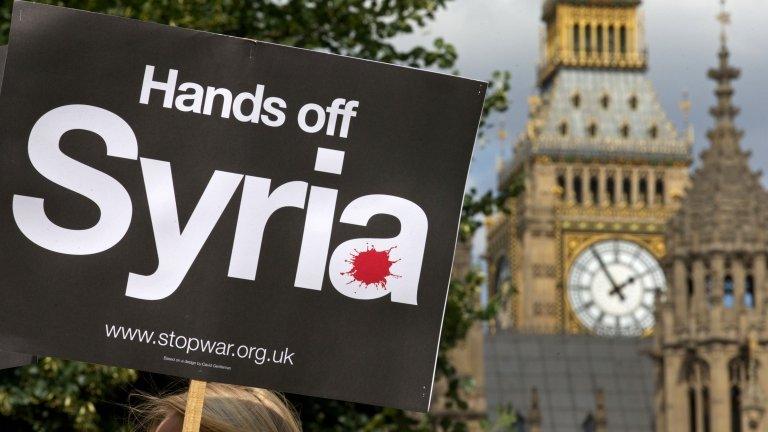Give AMs a say on going to war, Plaid Cymru says
- Published
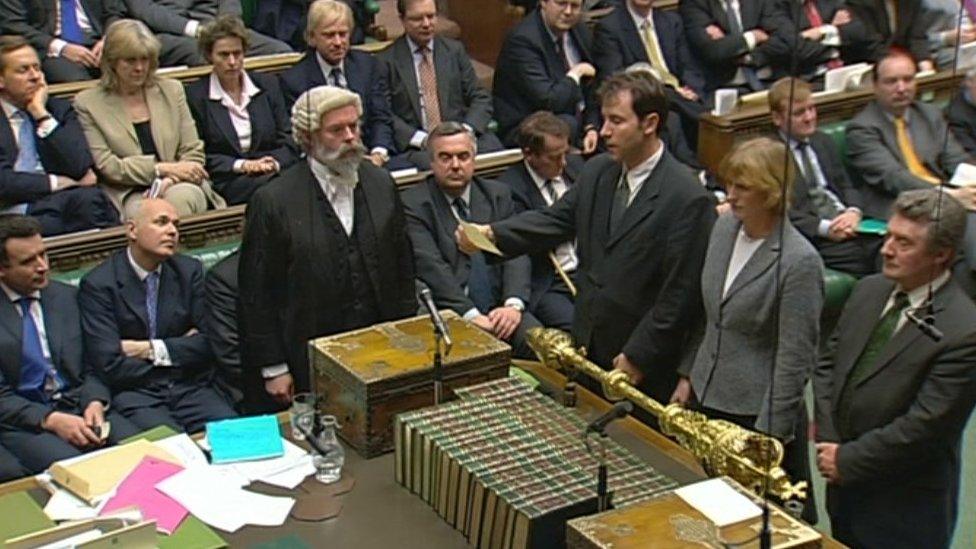
MPs backed action in Iraq in 2013, despite a rebellion among Labour MPs
Direct military action by UK ministers should only happen with the assembly's consent, Plaid Cymru has said.
The party says both MPs and AMs should be given a say to avoid "misadventures that have failed so spectacularly".
But defence is not devolved, and a Tory MP warned extra consultation could put servicemen and women at risk.
While MPs voted for military action in Iraq in 2003 and against it in Syria in 2013, the UK government is not legally obliged to consult MPs or AMs.
It had been argued that a convention had emerged for MPs to be allowed to debate the deployment of military forces, prior to doing so, except in the event of an emergency.
But Prime Minister Theresa May joined the US and France in conducting airstrikes in Syria in 2018 without consulting MPs beforehand.
No such convention or legal requirement to consult the assembly exists. AMs can hold debates on war and foreign policy, but their votes would not bind the UK government.
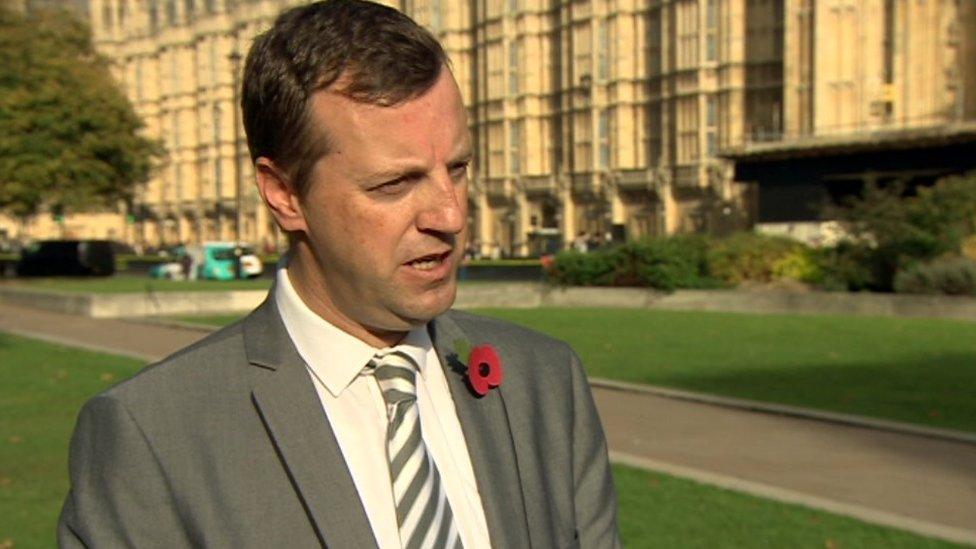
Jonathan Edwards said Welsh taxpayers foot the bill for treating ex-soldiers in the aftermath of war
At the party's last conference, Plaid delegates passed a change in policy calling for "any direct UK military action to require the consent of both Houses of Parliament and the endorsement of the National Assembly for Wales".
"Collective decision making across the British state would remove British jingoism from political decisions and lead to a defence policy based on security instead of the aggressive misadventures that have failed so spectacularly in the past," the motion passed at conference said.
Plaid Cymru MP Jonathan Edwards told the BBC's Sunday Politics Wales programme: "When it comes to the aftermath of war, when soldiers return often with severe physical and mental health injuries, it's the Welsh taxpayer that is responsible for paying for the cost of that treatment through our own health service.
"With all that in mind, I think it's more than reasonable to request that no British government should send our young people to war without the endorsement of our own national assembly."
But Chris Davies, Conservative MP for Brecon and Radnorshire, said defence decisions should be made in Westminster.
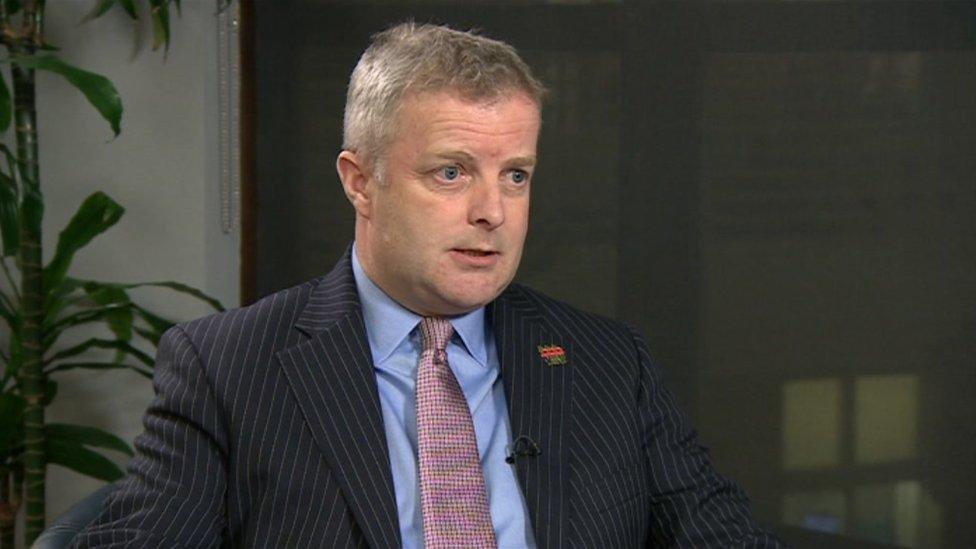
Chris Davies said it would not be acceptable to put service men and women at risk
"We have to go through several debating chambers, give out more and more facts to the people who will be listening on social media, who will be listening on television, this is just putting our servicemen and women at risk," he said.
One Labour AM raised concern that giving AMs a vote could raise "all sorts of complications" with international treaties and obligations.
Labour Pontypridd AM Mick Antoniw, a former legal advisor to the Welsh Government, said: "If Estonia were invaded by Russia, we are a part of Nato, we are automatically committed to defending Estonia if that were to happen.
"Would we be suggesting in those circumstances that Wales could then actually have a veto over that, or that a response might be delayed?"
Watch Sunday Politics Wales on BBC One Wales at 11:00 GMT on 4 November
- Published17 April 2018
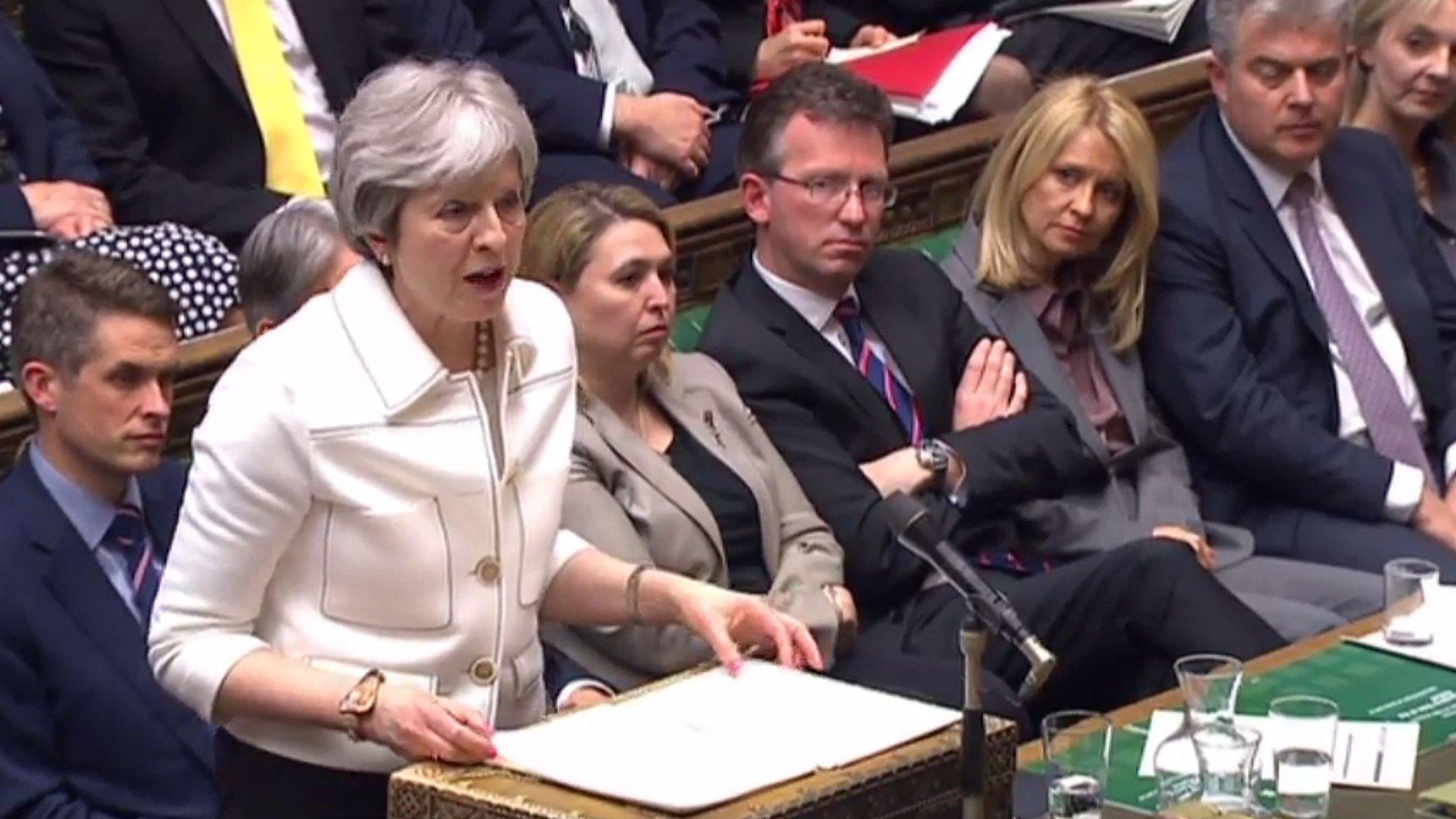
- Published30 August 2013
